
Starting June 1st, 2023 Our warehouse fee will be $0.65/cubic foot per month
In effort to lower the warehouse storage fee during inflation, we have went narrow aisle racking.This construction took us four months but the project is finally completed. With narrow aisle racking, we are able to drop storage by 24%.We as partners will go through this inflation together.
05/06/2024
Businesses need to think about where to store their inventory as e-commerce grows. Online buying is clearly appealing, but where are the things kept before a purchase is made?
There are many different types of warehouses, and for ecommerce businesses, your bottom line may be greatly impacted by your choice of type. When it comes to selecting the ideal warehouse, variables like capacity, prices, and location are just the tip of the iceberg effects.
We'll look at 15 different kinds of warehouses in this article and explain their special qualities, advantages, and best usage. You'll be better prepared with the information to confidently select the best option for your e-commerce firm if you comprehend each of these options.
Warehousing solutions are far from uniform. Serving as the backbone of your supply chain, the appropriate warehouse goes beyond mere inventory storage. It can significantly impact the pace and effectiveness of order fulfillment while also influencing your market reach.
The subsequent sections examine all 15 types of warehouses, taking into account their scalability, costs, specifications, and common uses.
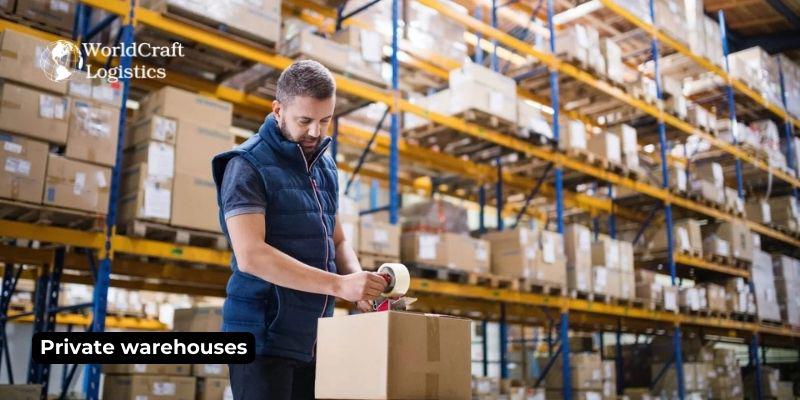
Private warehouses are establishments that are solely owned and run by one company. They provide total control over every facet of operations, such as staffing, technology, and security. They are usually built from the ground up, but they can be customized to fit specific company requirements. However, their establishment comes with a high cost of acquisition or construction, as well as continuing operating and maintenance expenses.
These warehouses are particularly favored by large or enterprise-level businesses with considerable inventory volumes and specialized operational demands.
☑️ Growth potential: High, attributed to the complete command over storage and operations.
☑️ Cost: High, reflecting expenditures on land, construction, and ongoing operations.
☑️ Prerequisites: Suitable for large-scale enterprises with specific operational prerequisites.
☑️ Popular use cases: Multinational corporations, prominent manufacturers.
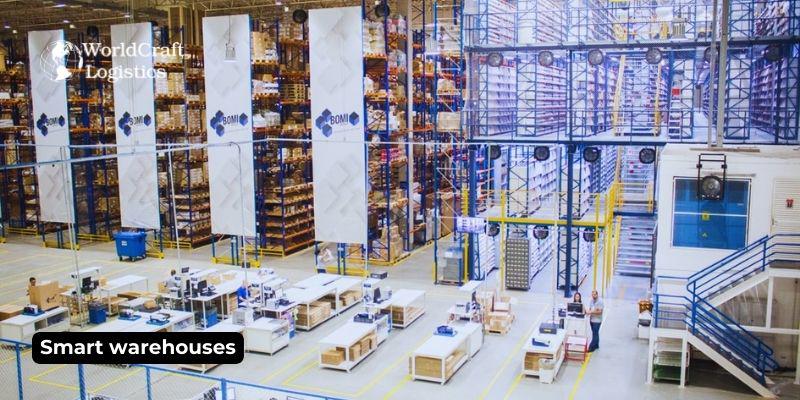
Modern technology, such as robotics, artificial intelligence, the Internet of Things, and machine learning, is used by smart warehouses to optimize operations. They make it possible to monitor inventory in real time and automate the picking, packing, and sorting procedures, which lowers costs over time and increases efficiency. However, the initial setup comes at a high cost, and technological expertise is necessary for successful integration. Don't miss important content: 👉 Positive impacts and applications of AI in warehouse management
Ideal for businesses striving for forefront positions in tech-driven automation and instantaneous data analytics.
☑️ Growth potential: High, facilitated by automation for efficient expansion.
☑️ Cost: Initial setup may be expensive due to advanced equipment and software.
☑️ Prerequisites: Technical proficiency required for seamless integration.
☑️ Popular use cases: Technology-oriented enterprises emphasizing real-time data and automation.
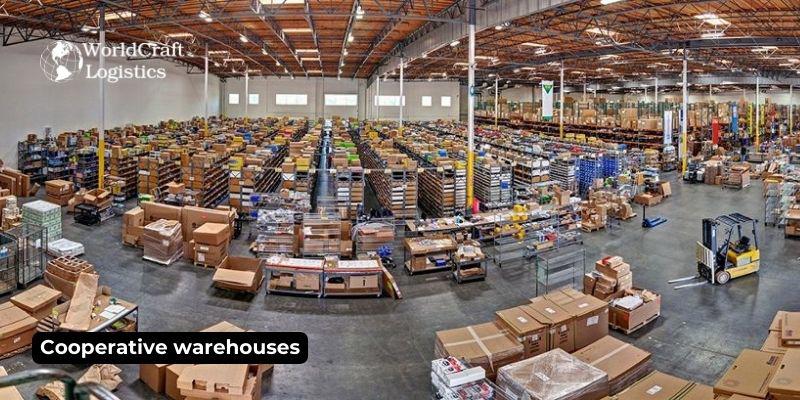
Shared warehouses provide a collaborative solution for a cluster of businesses to collectively oversee and upkeep the facility. They bring about cost-sharing advantages, reduced investment needs, and enhanced negotiating leverage. However, participation mandates a cooperative pact and may not align with enterprises seeking autonomy.
This alternative is most suitable for businesses with modest storage requirements and a willingness to engage in joint efforts.
☑️ Prospects for growth: Moderate, joint management might constrain individual scaling
☑️ Cost: Reduced, with expenses distributed across participants
☑️ Requirements: Willingness to collaborate and engage in shared decision-making
☑️ Common applications: Small to medium-sized enterprises and local ventures
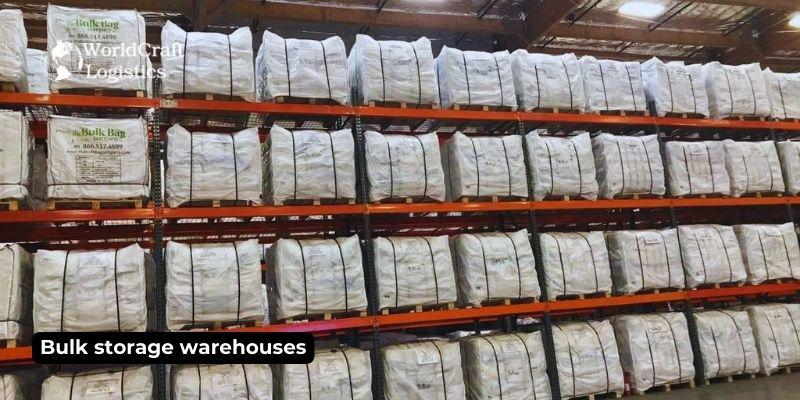
Bulk storage warehouses are purposefully engineered to efficiently house substantial amounts of a single product, like grains, chemicals, or raw materials. Typically situated near manufacturing plants, they provide a cost-effective means of managing bulk goods while facilitating convenient access for transportation and distribution.
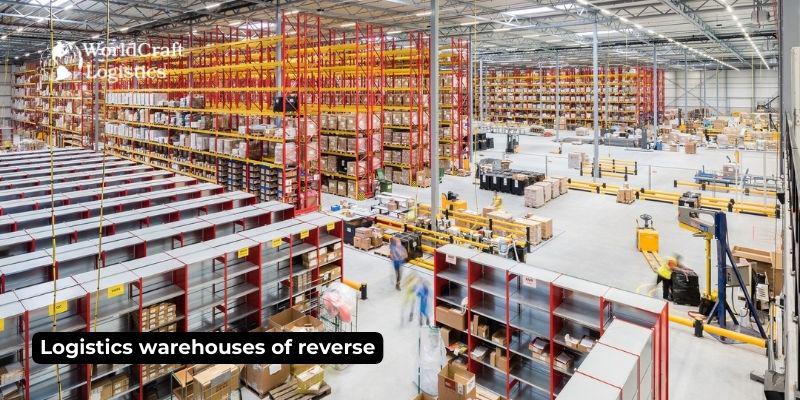
Reverse logistics warehouses specialize in managing returned items, undertaking tasks like inspection, restocking, refurbishing, recycling, or disposal. They prove indispensable for businesses grappling with substantial return volumes, notably within the ecommerce and retail sectors.
While some fulfillment centers incorporate return handling services, for businesses solely seeking to outsource returns processing, reverse logistics warehouses offer an optimal solution.
☑️ Growth potential: High, particularly for ecommerce and retail sectors
☑️ Cost: Low to medium, contingent upon the extent of returns processing required
☑️ Prerequisites: Businesses contending with high return volumes
☑️ Common applications: Ecommerce ventures, retail establishments
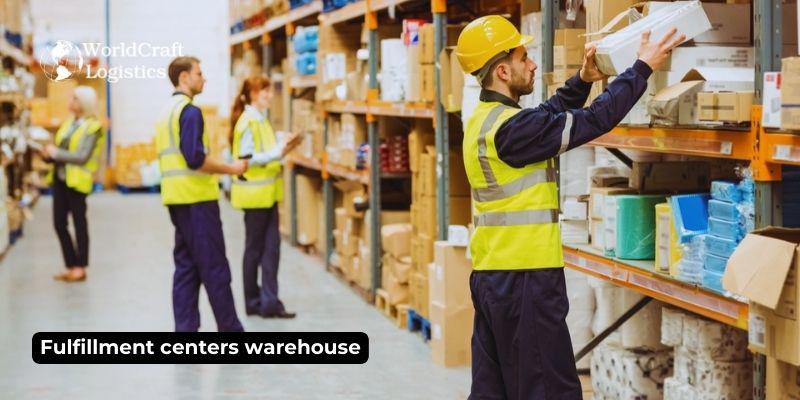
Warehouses and fulfillment centers are often conflated, but they serve distinct purposes.
Fulfillment centers are vital in the ecommerce realm, overseeing inventory management, order processing, picking, packing, shipping, and even handling returns. Their hallmark features include high-volume order handling and swift delivery capabilities. Furthermore, they are engineered to expand alongside your business, offering considerable growth opportunities.
If you operate an ecommerce venture necessitating rapid order fulfillment and seek to optimize operations through integrated technological solutions, a fulfillment center represents an optimal choice.
☑️ Growth potential: High, thanks to scalability aligned with business expansion
☑️ Cost: Moderate, typically due to investments in technological infrastructure and related services
☑️ Prerequisites: Best suited for ecommerce enterprises dealing with substantial order volumes
☑️ Common applications: Ecommerce businesses, subscription box services
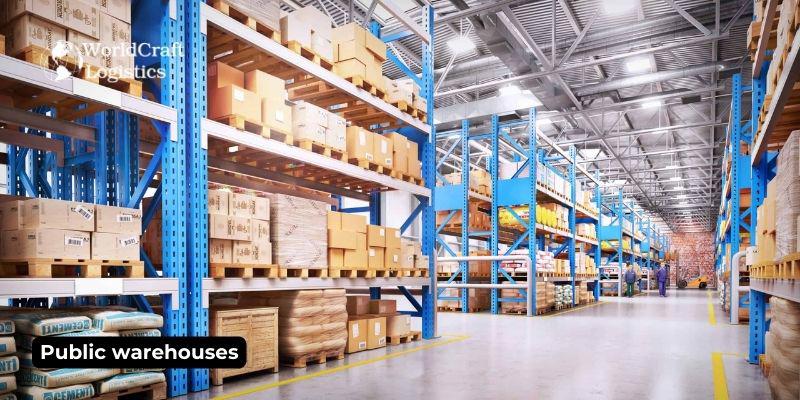
Public warehouses, managed by third-party entities, provide rental space on a short-term basis. They offer a cost-effective solution for businesses needing adaptable storage arrangements. While they typically provide basic services, they may lack specialized infrastructure or features.
This warehouse category suits startups or small enterprises grappling with variable inventory levels or seasonal merchandise.
☑️ Growth potential: Medium, contingent upon available space
☑️ Cost: Lower, reflecting rental agreements
☑️ Prerequisites: Suited for businesses experiencing inventory fluctuations
☑️ Common applications: Startups, small businesses, seasonal enterprises
👉 Don't miss important content: What is Warehouse Space? How to calculate Warehouse Space Utilization
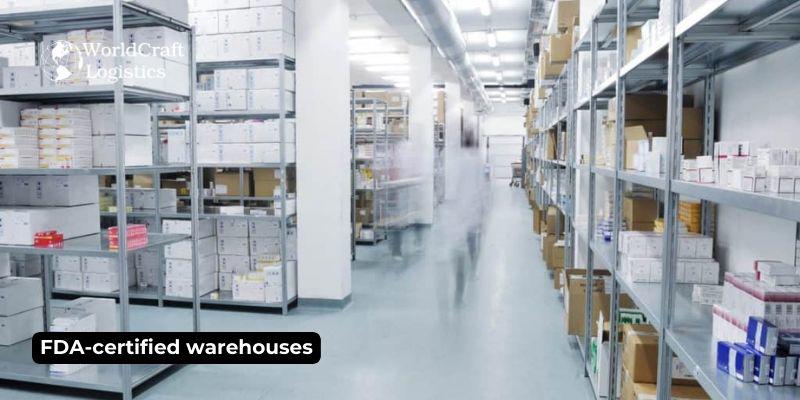
Businesses handling food, medications, medical devices, and other regulated goods are served by FDA-certified warehouses. These establishments ensure that storage conditions fulfill FDA guidelines, guaranteeing strict adherence to regulations.
☑️ Growth potential: Medium to high, contingent upon the chosen FDA warehouse partner
☑️ Cost: Moderate, reflecting compliance and regulatory demands
☑️ Prerequisites: Essential for businesses dealing with FDA-regulated products
☑️ Common applications: Pharmaceutical firms and food manufacturers
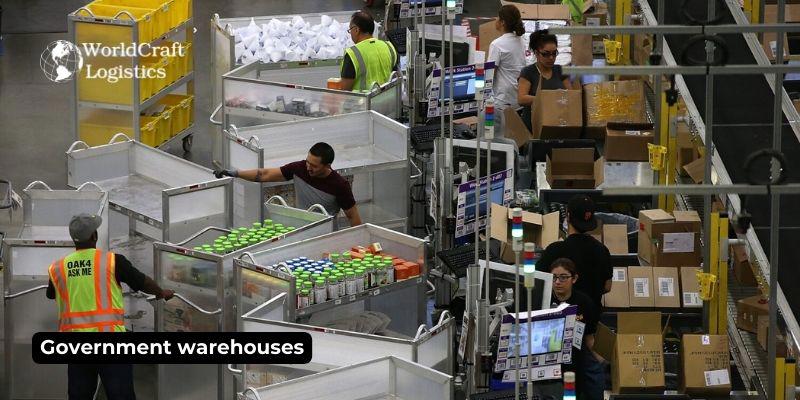
Government warehouses, under the ownership and operation of governmental bodies, primarily serve to store government-owned commodities. However, when not fully utilized, governments often extend the opportunity for private enterprises to lease space at a reduced cost compared to other warehouse options.
☑️ Growth potential: Low to medium, typically geared towards government utilization
☑️ Cost: Low, as governments offer excess space for rent
☑️ Prerequisites: Minimal to no requirement for tech-related features
☑️ Common applications: Businesses in agriculture, manufacturing, or construction industries
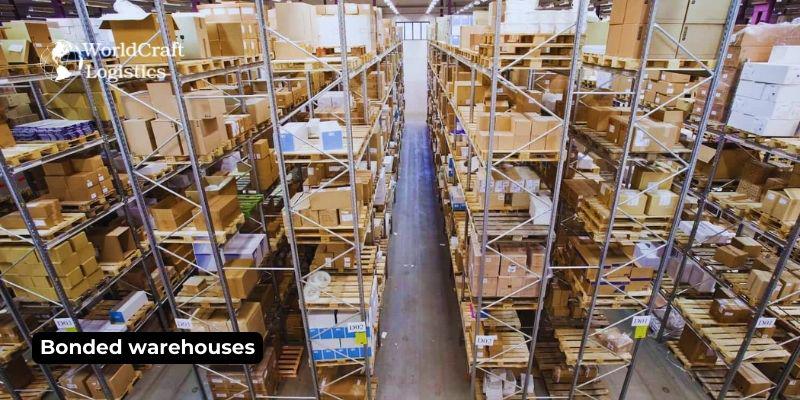
Before customs duties are settled, imported items are securely stored in bonded warehouses under the supervision of customs authorities. They make it possible to postpone paying duties on products until after they are sold, provided that customs laws are strictly followed.
This warehouse category proves especially beneficial for enterprises engaged in international trade, aiding in the efficient management of cash flows.
☑️ Growth potential: Medium, contingent upon international trade activity
☑️ Cost: Medium, with duties deferred until goods are sold
☑️ Prerequisites: Essential for businesses engaged in importing goods
☑️ Common applications: Import-export firms, multinational corporations
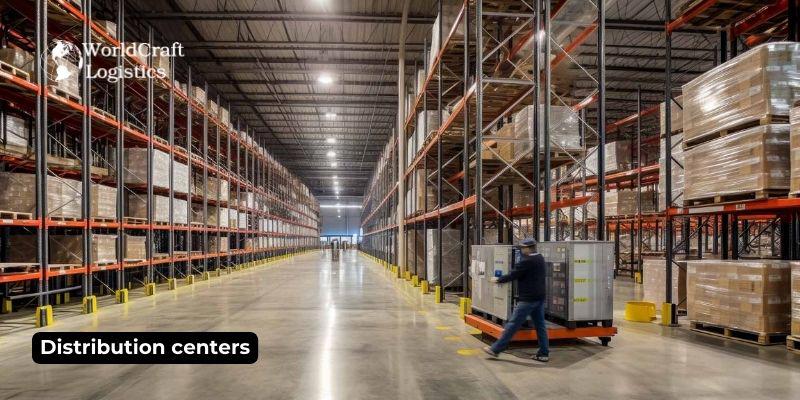
Distribution centers serve as pivotal transit points in the supply chain, facilitating the efficient movement of goods from suppliers to end consumers. Engineered for swift intake, sorting, and redistribution, they play a critical role in expediting the flow of products to retail outlets or directly to customers. Consequently, they boast significant growth potential and rapid processing capabilities.
Distribution centers are often used by retail businesses, especially those with large retail networks and direct-to-consumer operations, to streamline their supply chains.
☑️ Growth potential: High, supporting the expansion of retail outlets and direct-to-consumer delivery
☑️ Cost: Moderate, contingent upon the scale and number of retail establishments
☑️ Prerequisites: Beneficial for businesses with multiple retail outlets or direct-to-consumer requirements
☑️ Common applications: Retail chains, ecommerce ventures
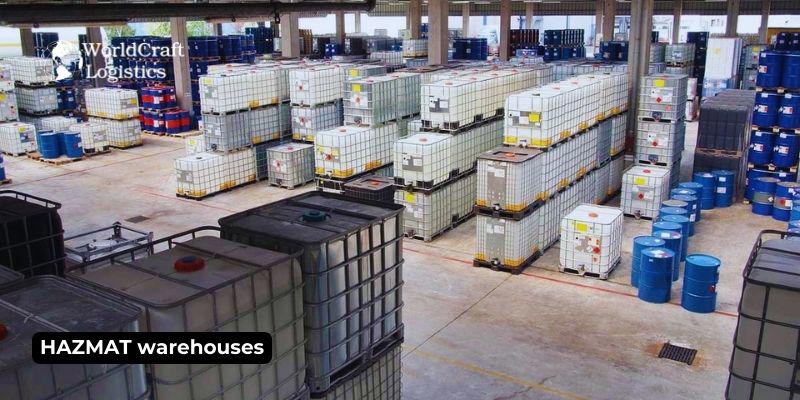
HAZMAT warehouses are specialized facilities crafted for the storage and transportation of hazardous materials. They are equipped with stringent safety protocols and security measures to avert accidents and ensure adherence to regulatory standards.
Businesses handling chemicals, toxic waste, or other hazardous products are subject to legal obligations, necessitating the use of such facilities. While these warehouses primarily store chemicals, they may also accommodate common household items like hand sanitizer, aerosol hairspray, and perfume.
☑️ Growth potential: Medium, contingent upon the demand for hazardous materials
☑️ Cost: High, attributed to the stringent safety measures and compliance requirements
☑️ Prerequisites: Essential for businesses involved in hazardous material management
☑️ Common applications: Chemical manufacturers, toxic waste management firms
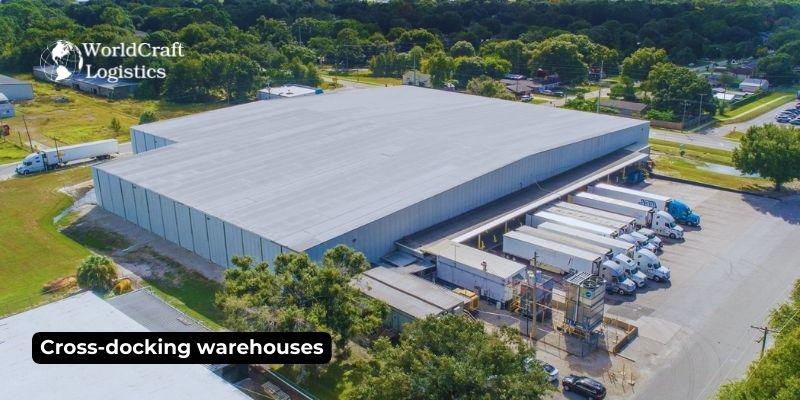
Cross-docking warehouses streamline operations by transferring incoming goods directly onto outbound vehicles with minimal interim storage. This approach cuts storage expenses and expedites delivery times but demands meticulous coordination and efficient logistics planning.
These warehouses prove optimal for enterprises dealing with perishable goods or those seeking to minimize storage time and costs.
☑️ Growth potential: Medium, contingent upon the efficacy of logistics planning
☑️ Cost: Reduced storage expenses owing to abbreviated storage durations
☑️ Prerequisites: Businesses prioritizing minimized storage time and costs
☑️ Common applications: Enterprises managing perishable goods, rapid transit operations
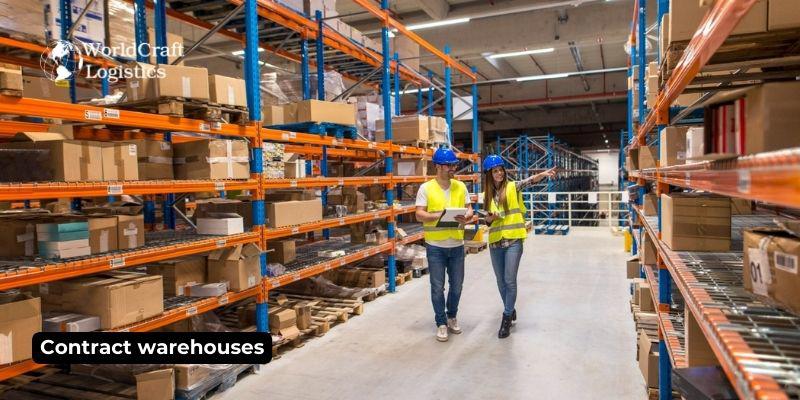
Contract warehouses, distinct from contract logistics, are outsourced facilities operated by third-party providers. They offer extended contractual agreements and a suite of tailored services to clients. While presenting a cost-effective and streamlined warehousing solution, they necessitate a prolonged commitment and may lack the flexibility of alternative options.
These warehouses prove advantageous for businesses desiring the advantages of a private warehouse without the associated capital investment and managerial obligations.
☑️ Growth potential: Medium to high, contingent upon contract terms
☑️ Cost: Moderate, with long-term agreements often proving cost-efficient
☑️ Prerequisites: Suitable for businesses seeking the benefits of private warehouses without capital investment
☑️ Common applications: Medium to large enterprises seeking customized services
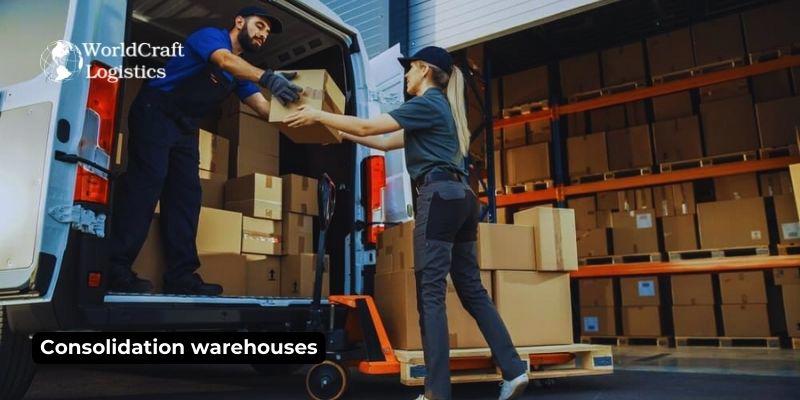
Consolidation warehouses gather small shipments from multiple suppliers, amalgamate them into larger loads, and dispatch them to their ultimate destination. While they can substantially reduce shipping expenses and enhance efficiency, they demand meticulous planning and oversight.
These warehouses suit businesses procuring products from diverse suppliers seeking to curtail shipping costs.
☑️ Growth potential: Medium, contingent upon effective supply chain management
☑️ Cost: Reduced, attributed to shipment consolidation and decreased shipping expenses
☑️ Prerequisites: Businesses sourcing products from various suppliers
☑️ Common applications: Ecommerce enterprises, retail chains
👉 Read more, here: Consolidation Warehousing: A comprehensive guide to Tips & Benefits
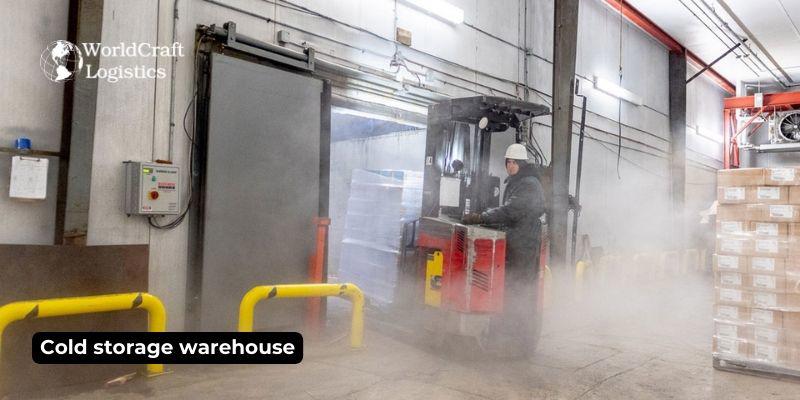
Cold storage warehouses are dedicated to preserving temperature-sensitive products, which can encompass an entire facility or a designated section within a warehouse. These warehouses maintain controlled environmental conditions to safeguard inventory, preventing losses or degradation before delivery. Their primary advantage lies in providing a secure environment for perishable goods like food or medicine.
☑️ Pros: Ideal for companies handling perishable inventory. Appealing to businesses with products requiring specific storage conditions, such as artwork or plants
☑️ Cons: Not all products are suitable for cold storage, imposing limitations on the types of goods that can be stored
Selecting the right ecommerce warehousing solution is a critical strategic decision that can profoundly impact your brand's image and reputation. While a private warehouse offers advantages like total control and customization tailored to your needs, it also comes with higher costs, increased responsibilities, and potential scalability challenges.
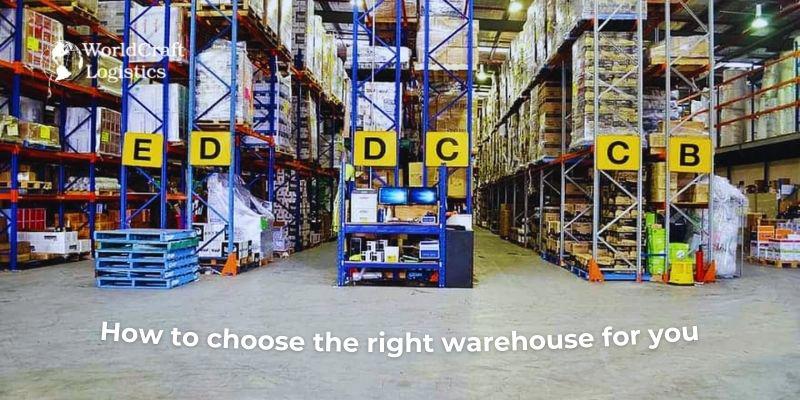
To ensure an informed decision, consider these five key dimensions:
Evaluate how your warehouse choice aligns with your business model. Factors such as SKU diversity, order volume, and seasonality should guide your selection. For instance, a fashion brand with frequent inventory turnover may require a different warehouse type than a furniture retailer with larger, low-turnover items.
Prioritize delivering an exceptional customer experience by considering your customer demographics and their expectations. Leveraging a third-party warehouse distribution network can place you closer to your customers, enabling faster delivery times and lower shipping costs, especially if your customer base spans a wide geographic area.
Anticipate the future growth of your business and ensure your chosen warehouse can accommodate expansion. Look for features like customization options, open APIs, additional space, or multiple locations. Your warehouse should offer the flexibility to scale up or down based on demand patterns, facilitating efficient inventory management.
Choose a warehouse provider with a proven track record and extensive industry experience. Experienced logistics centers understand the complexities of ecommerce and can offer valuable insights and strategies to help your business navigate challenges and scale effectively.
Ensure seamless integration between the warehouse management system (WMS) and your existing ecommerce platforms and tech stack. This integration enhances inventory visibility, accelerates order processing, and improves overall efficiency.
By carefully considering these dimensions, you can make an informed decision that optimally supports your ecommerce operations and enhances your brand's success.
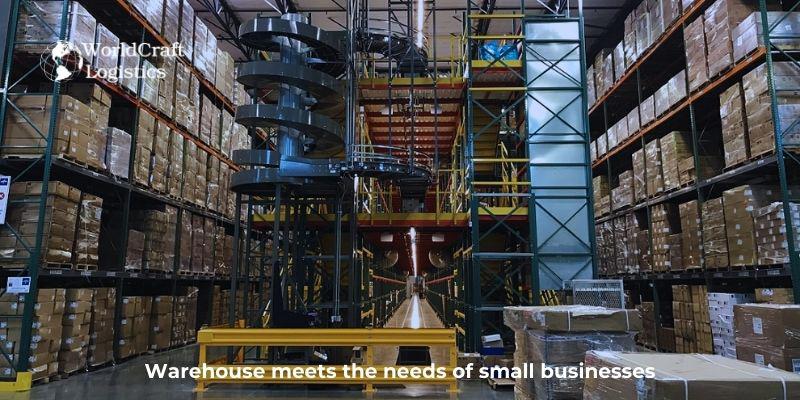
Looking for warehousing solutions tailored to the unique needs of small businesses? Look no further than Worldcraft Logistics. Our warehouses are strategically designed to cater to the specific requirements of small enterprises, offering flexible storage options, efficient inventory management, and cost-effective solutions.
With our commitment to personalized service and attention to detail, we ensure that your goods are handled with care and precision, allowing you to focus on growing your business without the hassle of logistics. Contact Worldcraft Logistics today to discover how we can meet your warehousing needs and support your small business's success.
Update important warehouse information from Jimmy Nguyen Tran (CEO of Worldcraft Logistics) 👉 https://worldcraftlogistics.com/explore-worldcraft-logistics-new-dallas-tx-warehouse-2024-solution
SEO
Digital Marketing/SEO Specialist
Simon Mang is an SEO and Digital Marketing expert at Wordcraft Logistics. With many years of experience in the field of digital marketing, he has shaped and built strategies to effectively promote Wordcraft Logistics' online presence. With a deep understanding of the logistics industry, I have shared more than 500 specialized articles on many different topics.
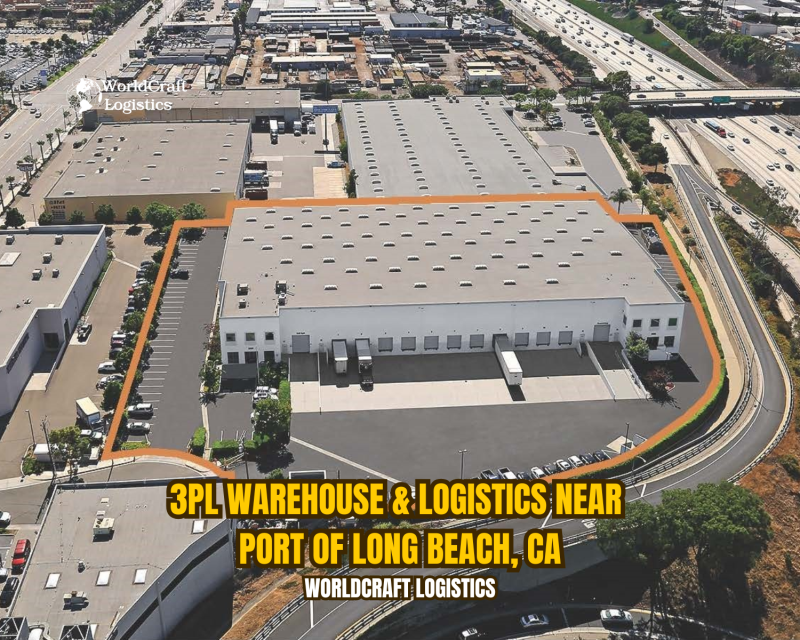
Warehouse
12/30/2024
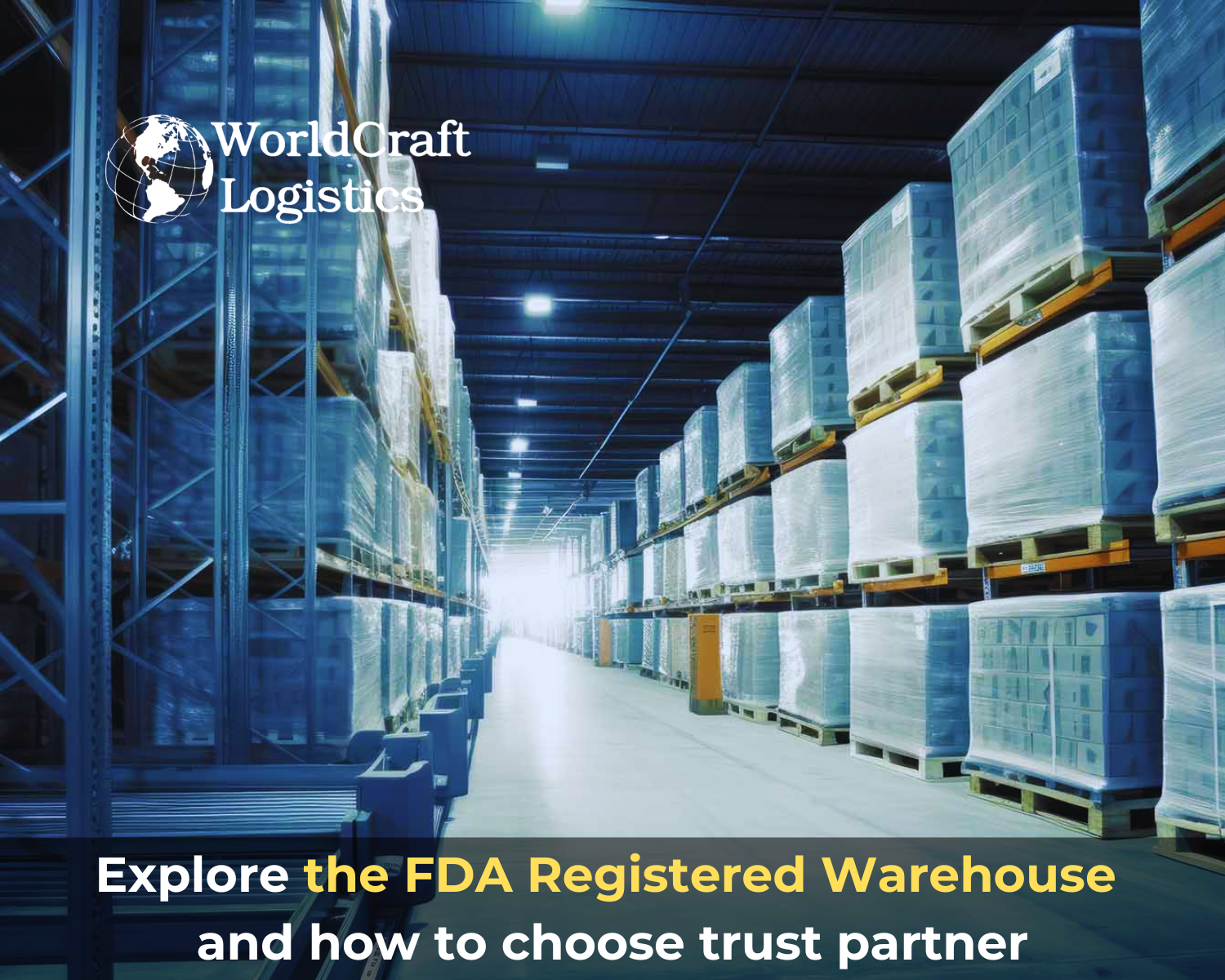
Warehouse
06/16/2024

Warehouse
03/03/2024
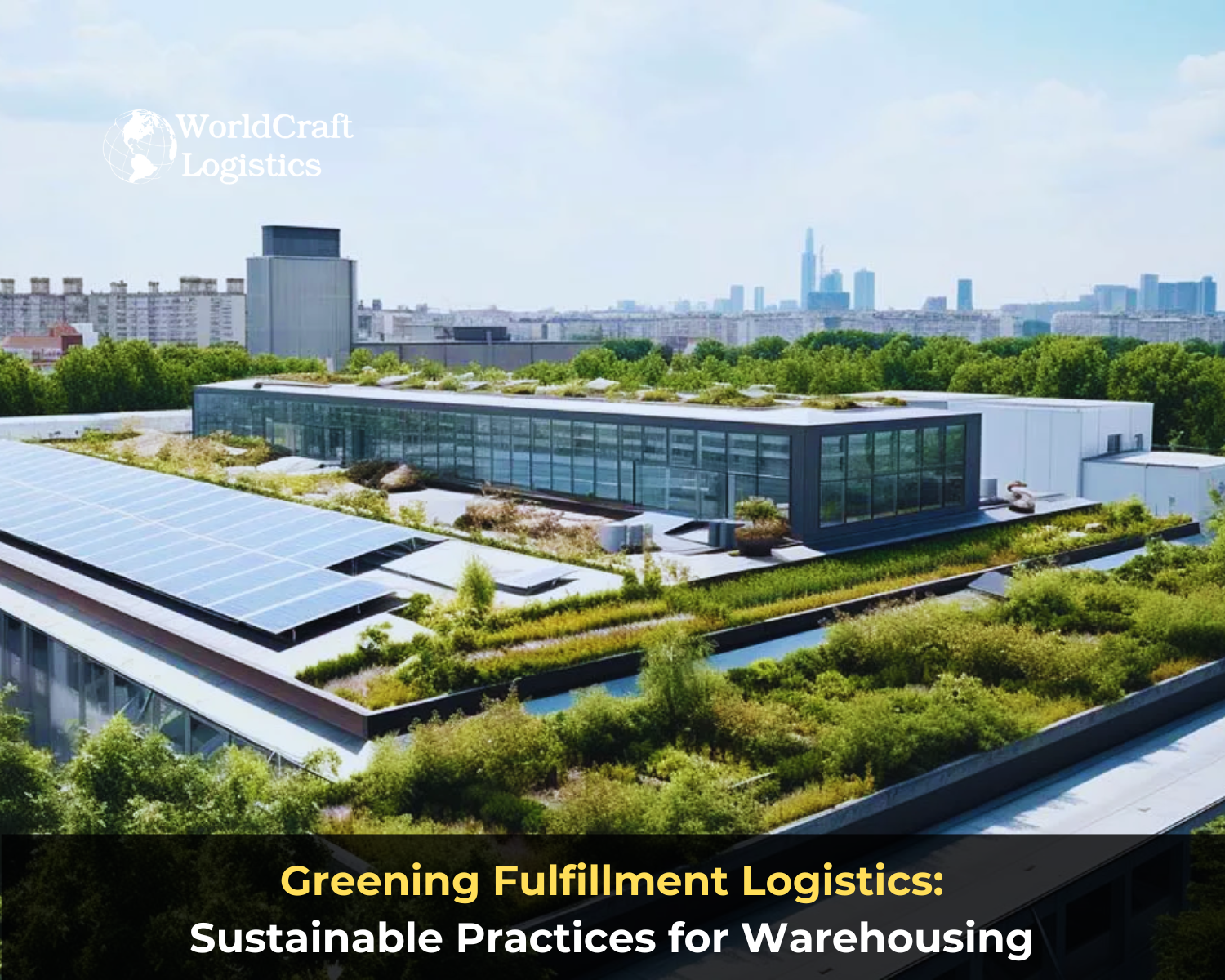
Warehouse
08/25/2024
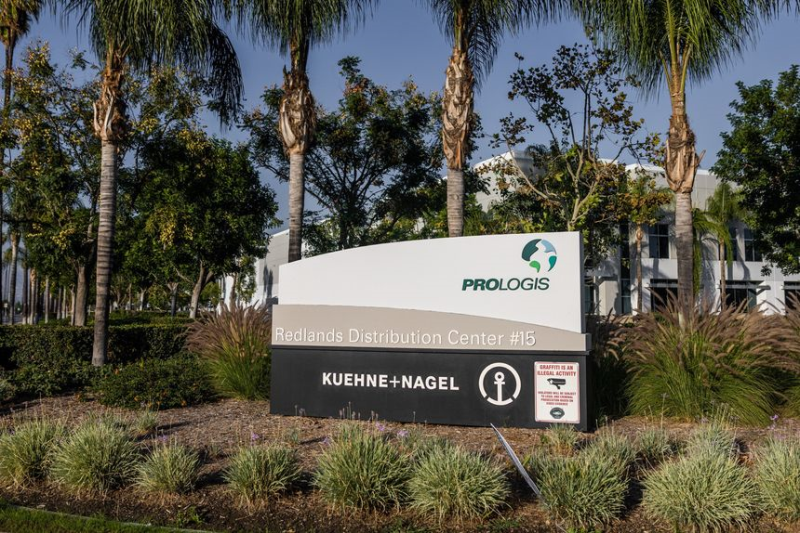
Warehouse
02/20/2023